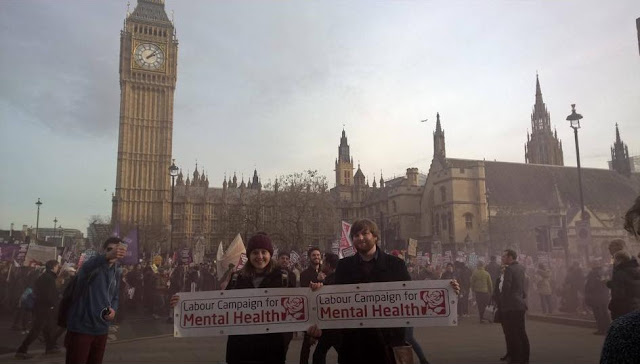A poignant Remembrance
On Remembrance Sunday, we remember those who died in war. Particularly the First World War, but also those who gave their lives fighting in subsequent wars. This year, I sang at two remembrance services in which all the music was written by people who either died in war themselves or had relatives who died. The poems of Wilfred Owen, who died one week before Armistice in November 1918, brought home poignantly to us the "pity of war".
Perhaps one day we will also honour those who did not fight but still lost their lives, and all those whose lives were ruined by war - the parents desperately trying to find out what happened to their children, the wives left to bring up children on their own, the soldiers whose mental and physical health was ruined, the villagers and townspeople whose homes and livelihoods were wiped out, the thousands of women raped. And perhaps one day we will end the jingoism that disfigures many of our remembrance services. There is nothing to celebrate about death in war.
But there is more than one kind of war. Some of us fight not against an external foe, but against the demons of the mind. This post is about one such person, and a particularly poignant Remembrance.
On Friday 9th November, my niece Annie posted this on Facebook:
It was her final post. Some time over the next two days, Annie died, alone in her London hostel room. She was 28.
We don't yet know how she died. But her last post leaves us in little doubt about why she died. While the world remembered those who lost their lives in war, Annie lost her life in her own personal war, finally defeated by the mental health problems with which she had struggled since her teens.
Annie is gone, but her war continues. She was a brilliant and dedicated campaigner for mental health services, a soldier in the public war against the stigma associated with mental illness and the deprivation that too often accompanies mental health problems. The photograph at the head of this post, taken a couple of years ago, is of Annie at a rally for mental health services, wielding her banner as if it were a shield.
A few days after her death, Labour's Campaign for Mental Health posted this on Facebook:
There is no need for this destruction. Annie's War must continue. I write this post in her memory, and in the hope that others too will join the fight. And as today is Thanksgiving, I also write this post in honour of her work, and in thanksgiving for the beautiful, intelligent, warm, funny person that she was.
She will grow not old, as we who are left grow old;
Age shall not weary her, nor the years contemn.
At the going down of the sun, and in the morning,
We will remember her.
It was a privilege to know you, Annie, and to be a part of your life, short though it was. Your battles are over, but others will continue this war against callousness and brutality. And we will win.
Rest in peace, Annie.
Photograph from Victoria Desmond, with thanks.



I've been fighting this war for 30 years now. The battlefield is Germany, but it doesn't seem to be very different. It is a three-front war, against the inner demons, against a financially and institutionally bled out system and against stigmastisation. Some of the people I got to know and love during this time went the way of Annie. Not once was it inevitable. Are we really going to win this war? I hope so.
ReplyDeleteThis comment has been removed by the author.
ReplyDelete